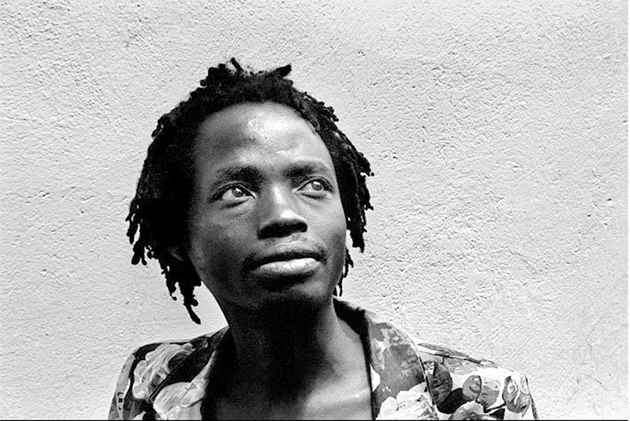Marechera’s spirit lives on

 Bruce Ndlovu Showbiz Correspondent
Bruce Ndlovu Showbiz Correspondent
The month of August marks 27 years since the death of famous Zimbabwean writer Dambudzo Marechera. Zimbabwe, a country which boasts one of the highest literacy rates in Africa, also boasts some of the greatest writers to ever put pen to paper. Charles Mungoshi, Chenjerai Hove, Shimmer Chinodya, Yvonne Vera and more recently Patina Gappah and NoViolet Bulawayo are some of the writers whose works rank among the most admired pieces of literature to come out of the African continent.
Zimbabwe’s hall of fame for literature, if the country had one, would not be complete without these names.
Marechera who died at the age of 37, is however in a class of his own.
Revered as much for his writing as for his larger than life personality, Marechera has grown to become the country’s most influential literary figure since his untimely death from an Aids related pulmonary disease on August 18, 1987.
Born Charles William Dambudzo Marechera in the deeply impoverished township of Vhengere Township, the young would-be author and poet was acquainted with hardship and squalor at a tender age. Unable to afford books of his own, Marechera’s first contact with literature, an art form that would shape and influence most of his life, was with a children’s encyclopaedia which he fished out of a rubbish dumpster outside an affluent white suburb near Vhengere.
Fuelled by an insatiable appetite for knowledge, he went on to attend the University of Rhodesia and Oxford University in England although both stays were cut short by his run ins with authorities.
As a poet and a playwright, Marechera’s abilities could not be sneezed at, but it was as novelist that he won the hearts of readers. His most popular book, House of Hunger, single handedly redefined Zimbabwean literature, as it saw the young Marechera introducing a groundbreaking and novel approach to chronicling the hardships of Zimbabweans under the thumb of the cruel Ian Smith led rebel regime.
Many writers had successfully interrogated the harsh social, economic and political realities of colonial Zimbabwe in their books but Marechera’s style and approach separated him from the rest.
No topic was taboo to Marechera, and with an unparalleled use of language, he tackled issues of race, sex and alienation in a fashion that had not been seen before.
It earned him the adulation of the reading public and the Caine Prize for African writing, a feat only replicated by NoViolet in 2012. However, as was often the case in his tragically short life, Marechera was stalked by controversy, as at the award giving ceremony in London, the exiled author resembled a drunk king ruining his own coronation, throwing glasses at the guests as some sort of protest against the literary establishment.
It is perhaps this spirit of rebellion than his actual writing that appeals to most Zimbabweans. His life perhaps was more chaotic than his violent and sometimes nightmarish books. If not his work, then his life, short as it was, is inspiration to many young Zimbabweans, among them writers, who seem to have posthumously installed Marechera as their cult leader.
One such writer, Nama award winning poet Philani Nyoni, believes that Marechera’s approach provided the blueprint for young writers as he threw out the rulebook and did not adhere to any writing conventions. According to Nyoni, Marechera shared so much of himself in his work and in so doing, enabled those that followed in his footsteps to do the same.
Before he explored the problems that bedevilled society, he exposed the demons that haunted his own mind and it’s this honesty that many identify with.
“Rebellion is synonymous with youths. Most revolutions are led by the young and Marechera was the epitome of rebellion thus his semi-deification.
“In addition to that, Marechera set himself apart from the style and preoccupations of his contemporaries and for some of us that’s worth emulating,” Nyoni said.
Celebrations such as the monthly House of Hunger poetry slam held at the capital’s Book Café and its counterpart in Bulawayo, the Mlom’ Wakho poetry slam, are illustrations that the spirit of Marechera still lives on, with many a poet exhibiting Marechera-style passion towards their art.
“Dambudzo invented his own rules and gave us confidence to be ourselves. He did not believe in confining himself. Zimbabwean literature could not have asked for a better standard and writers like us who learnt from him have an obligation to redeem his name and art while also proving he was not a madman but a prodigy ahead of his time,” said Nyoni.
However, like all great writers, Marechera has not been without his critics. Many thought his work deviated too much from the norm in African literature. His writing, they said, owed more allegiance to European literary exponents like James Joyce rather than celebrated African authors like Chinua Achebe hence its incomprehensibility to the average African reader.
Patina Gappah, another celebrated young writer, in 2010 pointed an accusing finger at what she perceived to be the sexist tone in Marechera’s celebrated works.
“I am writing an introduction to the new edition of Marechera’s Mindblast for Penguin. The more I read it the sadder I get and the more impressed I am.
“Marechera was gifted beyond the ordinary. But I am as always, extremely ambivalent, about him. He was shockingly sexist, even, I would say, misogynist,” she posted on the social network Facebook.
Such accusations against Marechera are understandable as he did not paint a particularly rosy picture of women in his books, but one could argue that neither did he glorify men. His books, like their architect did have its flaws, something which has not prevented his adulation by Zimbabweans from all walks of life 27 years after his death.
No writer has had such a lasting impact in Zimbabwean literature and until a hall of fame of some sort is put up for the country’s elite writers, his works will continue to live vividly in the hearts and minds of literature enthusiasts.











Comments